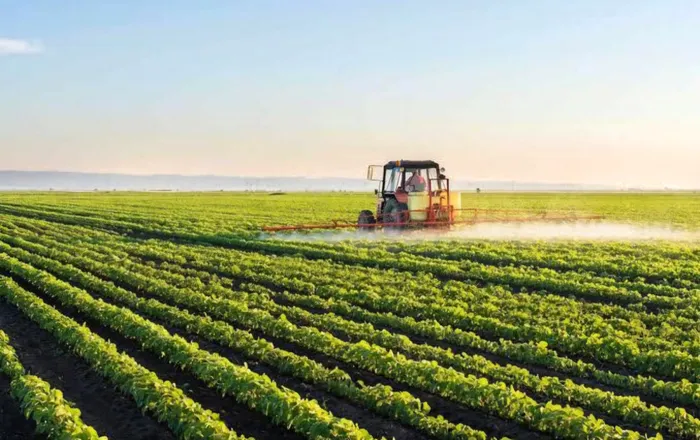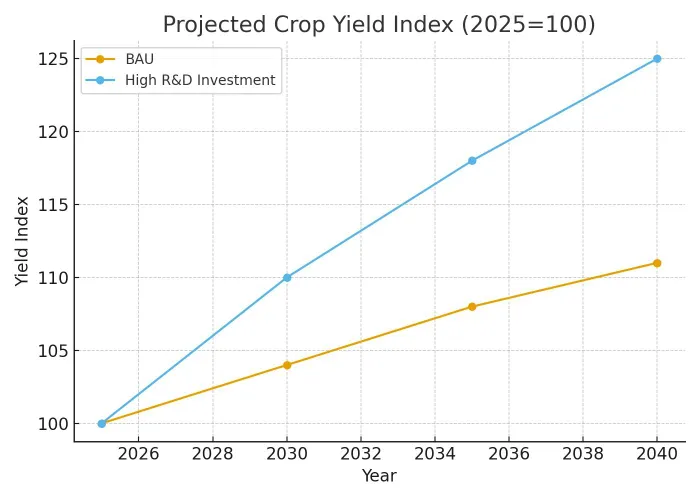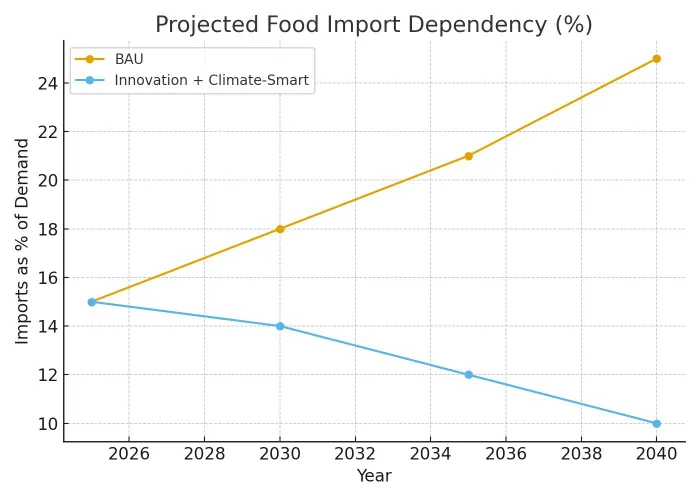South Africa’s agricultural future: Innovation or missed opportunity?

Agriculture in South Africa sits at a crossroads, says the author.
Image: IOL FILE
Agriculture in South Africa sits at a crossroads. It remains the backbone of rural livelihoods, food security, and exports, yet faces mounting pressures - climate variability, declining soil health, global market volatility, and persistent inequalities in land ownership and productivity. The question we must urgently ask is: what does the future hold, and how can we steer agriculture towards resilience and inclusive growth? As climate pressures continue to escalate and food demand surges, South Africa's agricultural sector stands at a critical juncture. Recent modelling indicates that strategic investments in innovation paired with inclusive policies have the potential to transform farming into a catalyst for economic prosperity. Conversely, without decisive action, the country risks deepening its dependency on external resources, which could undermine agriculture’s long-term sustainability. The choices made today will define the future of this vital sector.
To answer this, policymakers are increasingly turning to strategic foresight tools such as the International Futures (IFs) model. IFs is a global, integrated forecasting system that draws on historical data and projects trends across demographics, economics, health, governance, and the environment. Crucially, it allows us to test “what if” scenarios: what if South Africa invests heavily in agricultural R&D? What if climate change is left unmitigated? What if land reform accelerates inclusively?
A Mixed Outlook
The IFs baseline scenario paints a sobering picture. Without bold interventions, South Africa’s agricultural growth will remain modest over the next two decades. Yields for maize and wheat are likely to stagnate, constrained by climate stress and underinvestment in innovation. At the same time, demand for food will rise sharply, driven by population growth and shifting diets. Unless addressed, this mismatch risks deepening food import dependency and undermining rural stability.
Innovation as a Game-Changer
The good news is that the future is not fixed—it is shaped by the choices we make today. IFs simulations show that increasing investment in agricultural research and development to at least 1.5% of agricultural GDP could boost crop yields by up to 25% by 2040.

Projected Crop Yield Index (2025=100). Yields rise significantly under high R&D investment compared to business-as-usual
Image: Supplied.
Figure 1 clearly shows that yields would rise significantly under high R&D investment compared to business-as-usual (BAU) dispensation.
This single lever strengthens food security, reduces rural poverty, and creates jobs along value chains. Technological adoption also proves decisive. Precision agriculture, digital platforms for market access, biotech solutions, and climate-smart practices all feature strongly in IFs simulations. For example, accelerated adoption of drought-resistant seeds and smarter irrigation could double agricultural exports by 2040, positioning South Africa as a continental leader in food system resilience.
Equity and Inclusion are Critical
Yet innovation alone is not enough. If smallholder farmers are excluded from the innovation ecosystem, productivity gains will be uneven. IFs scenarios that combine technology diffusion with inclusive land reform and financial support mechanisms show the greatest overall benefits: higher rural incomes, expanded youth employment, and more stable food prices. It can be seen from Figure 2 that without innovation (BAU = Business as Usual), dependency rises. With climate-smart practices and inclusive innovation, imports decline.

Figure 2: Projected Food Import Dependency (% of demand). Without innovation, dependency rises. With climate-smart practices and inclusive innovation, imports decline.
Image: Supplied
This highlights a crucial truth—the future of South African agriculture is as much about equity and governance as it is about technology.
Charting a Sustainable Path
The IFs tool shows us that South Africa has the capacity to bend the agricultural trajectory towards prosperity, inclusion, and sustainability. But this requires action now:
- Scaling up public and private R&D investment in agriculture.
- Building robust innovation systems linking researchers, extension services, agribusiness, and smallholders.
- Accelerating climate adaptation strategies, including water management, soil restoration, and resilient seed systems.
- Ensuring equitable access to land, finance, and technology, especially for women and youth.
The Future is a Choice
The future is not something to be predicted—it is something we create. If South Africa embraces innovation while prioritising equity, agriculture can not only feed the nation but also become a regional powerhouse in sustainable food systems.
The IFs model makes the stakes clear: decisive action today will determine whether agriculture drives inclusive prosperity or slips into a cycle of missed opportunities.

Dr Thulasizwe Mkhabela is an Honorary Research Fellow with the African Centre for Food Security and the University of KwaZulu-Natal
Image: LinkedIn
Dr Thulasizwe Mkhabela is an Honorary Research Fellow with the African Centre for Food Security and the University of KwaZulu-Natal (MkhabelaT1@ukzn.ac.za) and an independent agricultural researcher and policy analyst with extensive experience in South African and African agricultural & development issues. He is also a director and Senior Researcher at Outcome Mapping (thula@outcomemapping.co.za; thulasizwe.mkhabela@gmail.com). Dr Mkhabela is also a Food, Agriculture, and Natural Resources Policy Analysis Network (FANRPAN) associate.
*** The views expressed here do not necessarily represent those of Independent Media or IOL.
BUSINESS REPORT